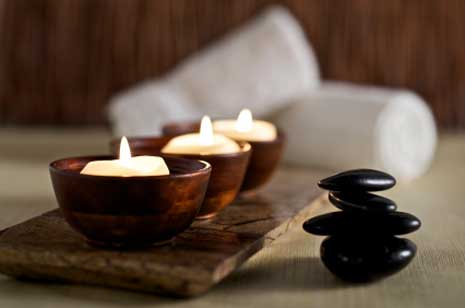Guidelines to improve employee health
Employer demands: No perfume, no cookies, no soda, no French fries…
The staff at the New York Health Department must make fundamental changes. The new service manual, titled “Life in the Cubicle Village” requires drastic changes in many parts of the workplace. Employees are discouraged in using perfume and scented body care products, and are encouraged to change their eating habits in the workplace. The New York City Health Department wants to set a good example and be a role model to the other people in the city. Refraining from eating cookies and consuming fried food is now enforced under the new guidelines. Not all employees like these new changes, but these changes are useful if one looks seriously at the goal of being a role model to others, initiated by this employer.
Bureau represents personal health interests
The New York Department of Health has prevailed in the past to improve the health of its city inhabitants, which at times has caused a stir. Initially, the general smoking ban on the beaches in the region was a difficult transition, as was the prohibition of the use of hydrogenated cooking oil in fast food restaurants in the city.
With the new guidelines, the health department clarifies that these prohibitions are designed to seriously improve the health of the population. Not all employees are happy about the changes in the manual and some perceive them as intolerable harassment, and are not pleased with the threatening fine for non-compliance. Others are happy and have recognized that the health and well being of all employees will be enhanced by the reforms.
Employer demands employees to omit fragrances and perfume
“Spreading odors is just like noise spreading beyond the walls in the cubicle,” explained the York Board of Health. Their employees need the knowledge that it is important to refrain from fragrances and to refrain from dispensing of perfume because some people are very sensitive and react to the chemicals in perfume, cologne and other perfumed products. Therefore employees are being asked to maintain good personal hygiene without using products with noticeable fragrance or odor.
No detergent, disinfectant, or room scents allowed
Because many commercially available cleaning agents and disinfectants contain chemicals harmful to health, the health department requires that employees leave such products at home and not bring them to the workplace. If an employee needs a cleaning agent, he may apply to the cleaning service which has available products satisfying the required safety standards. “Air freshener” or room sprays, because of their ingredients, which can harm the health of others, are prohibited in the workplace of the Cubicle Village as well.
Healthy diet instead of sweet and greasy
French fries at meetings, events, or at the employee birthday parties? A “No Go” at the New York Department of Health. Fried food is not allowed. If a cake is brought to the party, then no cookies are allowed. Instead, whole-grain crackers are served. The preferred drink is filtered water because it is healthier and avoids high calories. If an employee or his colleague still wants to offer something different, the drink should not exceed 25 calories per pint. Filtered water must still be on the table. These provisions are designed to protect health and the environment.
Bureau will practice what they preach
The New York Health Department’s colored booklet with new operating procedures may not set so well with some employees, but on the other hand, the department actually requires no more from the employees than what they themselves will practice. They will practice what they preach in order to improve the health of people in New York. One goal is to cut obesity, reduce heart disease by cutting down on the fats and salty foods, cut down on allergies, asthma and other diseases that are common in the population which can be caused by unhealthy lifestyles. Their new guidelines will promote healthy lifestyles instead.
To simply preach to New Yorkers, to be free of salty, greasy fast food, alcohol, cigarettes, sweets and to avoid donuts is not enough. Will those in charge continue to consume these items? To ban soft drinks in schools, at festivals, and in staff offices while those making the guidelines still continue to use these? A true role model would in fact also refrain from the items they are asking their employees to refrain from. That is the commitment which those in charge have made to their employees.
After two or three years, the Department of Health will be able to prove that the new guidelines are actually not arbitrary harassment, but are measures that serve the health of the people. It is expected that the causes of absenteeism of around 3,000 employees, and leaving the profession due to illness and deaths from degenerative diseases will be reduced. Such figures could provide the health department the black and white proof needed for New Yorkers, that a healthy lifestyle, a good diet, and refraining from chemical products can have a positive impact.
Author: Silvia K. Müller, CSN – Chemical Sensitivity Network, June 2011


